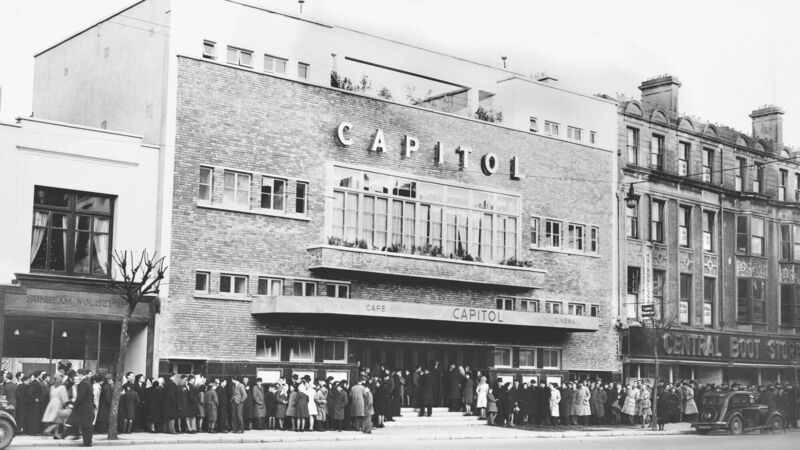Changing times: Where have all the cinemas gone in Cork city?

Queueing at the Capitol Cinema in Cork City in 1947. Picture: Irish Examiner Archive
The Savoy. The Pavilion. The Coliseum. The Capitol. It didn't take long to happen upon a cinema in days gone by when strolling around Cork's city centre. Now, though, the picture has changed. With the temporary closure of the Gate cinema during a change of ownership and refurbishment, the city centre has been left without a mainstream cinema for several months.
There are venues, of course, some more permanent than others. Year-round, Triskel Christchurch operates as an arthouse cinema but leans towards niche offerings rather than mainstream blockbusters. Triskel is also one of the main venues for the Cork International Film Festival (Nov 9-26), which has had to manage without the Gate for this year’s event.







